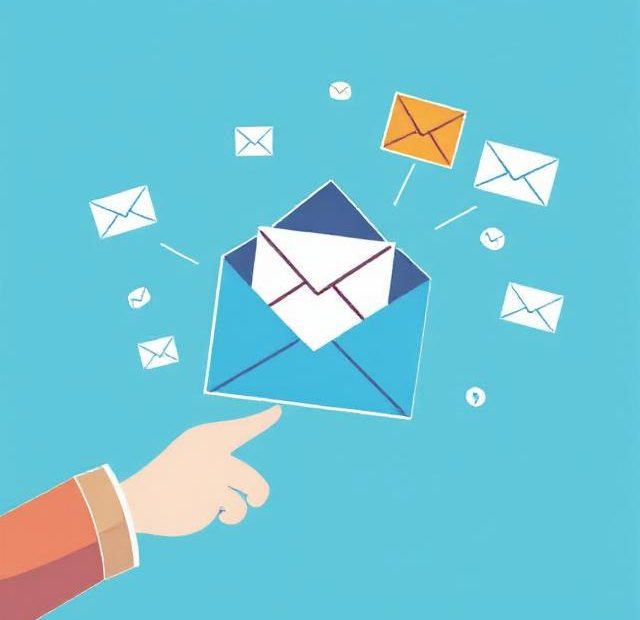Struggling to get your emails opened or clicked? You might be missing one of the most powerful tools in copywriting: power words. These emotionally charged, action-driving words have been proven to capture attention, stir emotion, and encourage action. Whether you’re writing subject lines, calls-to-action (CTAs), or body content, strategically using power words in your emails can dramatically improve your results.
In this post, we’ll break down what power words are, why they work, and give you a curated list of the best ones to use in your email marketing today.
What Are Power Words?
Power words are persuasive, emotionally driven words that encourage readers to take action. They trigger psychological or emotional responses like curiosity, urgency, fear, or excitement — making your message more compelling.
Here’s why power words matter in email marketing:
-
They boost open rates when used in subject lines.
-
They increase click-through rates by enhancing your CTA.
-
They drive conversions by creating urgency and excitement.
When you choose the right power words in your emails, you can guide your readers toward the exact action you want them to take — without sounding pushy or gimmicky.
Why Power Words Work in Emails
Human brains are wired to react emotionally. When people scan their inbox, they aren’t evaluating every message logically — they respond to feelings like curiosity, excitement, or fear of missing out (FOMO). Power words tap directly into these emotions.
Here’s how they help:
-
Grab attention in crowded inboxes
-
Evoke emotion and connection
-
Motivate readers to open or click
-
Make your message memorable
Even subtle word changes can shift the impact of your copy dramatically.
Best Types of Power Words to Use
Not all power words are created equal. The most effective words depend on your email’s goal and audience. Here are five main categories of power words — along with examples to try in your next campaign.
1. Urgency and Scarcity Words
These words push readers to act fast — ideal for flash sales, limited-time offers, or last-chance reminders.
Examples:
-
Limited
-
Now
-
Hurry
-
Today only
-
Final call
-
Don’t miss out
-
Running out
Subject line tip:
“⏳ Final Call: Your Discount Expires Tonight!”
2. Curiosity Words
Curiosity power words tease what’s inside your email without giving it all away — perfect for increasing open rates.
Examples:
-
Secret
-
Hidden
-
Revealed
-
Shocking
-
Little-known
-
Surprising
-
What happens next
Subject line tip:
“This Little-Known Trick Tripled Our Sales”
3. Trust and Security Words
If you’re nurturing leads or promoting high-ticket offers, these words help build credibility and lower resistance.
Examples:
-
Guaranteed
-
Proven
-
Backed
-
Safe
-
Official
-
Trusted
-
Research-based
Body copy tip:
“Our strategy is backed by 10+ years of proven results.”
4. Greed or Gain Words
Tap into readers’ desire for improvement — whether it’s more money, better health, or personal growth.
Examples:
-
Free
-
Save
-
Exclusive
-
Bonus
-
Win
-
Profit
-
Double
CTA tip:
“Download Your Free Guide Now!”
5. Fear and Loss Words
These trigger urgency through the fear of missing out (FOMO) or losing something valuable. Use sparingly to avoid sounding manipulative.
Examples:
-
Warning
-
Risk
-
Mistake
-
Missed
-
Danger
-
Expire
-
Last chance
Subject line tip:
“Are You Making This Costly Mistake?”
Where to Use Power Words in Emails
Now that you know which power words in your emails can boost performance, let’s explore where to place them for maximum impact.
✔ Subject Line
Use 1–2 power words to grab attention. Make it emotional, urgent, or benefit-driven.
✔ Preheader Text
The second thing users see in their inbox. Reinforce the curiosity or value introduced in the subject.
✔ Headings & Subheadings
Use powerful words to break up long content and refocus reader’s attention.
✔ Body Copy
Weave powerful words naturally into your email to reinforce key benefits or emotions.
✔ CTA (Call to Action)
Power up your CTA with urgent or gain-focused words. Instead of “Submit,” try “Get My Free Quote” or “Claim My Offer Now.”
Best Practices for Using Power Words
To make the most of powerful words, follow these email copywriting tips:
-
✅ Stay authentic – Choose words that align with your brand voice.
-
✅ Avoid overuse – Too many power words can feel manipulative or spammy.
-
✅ Test regularly – A/B test different subject lines and CTAs to see what resonates.
-
✅ Know your audience – A word like “risk” might work for finance but not wellness.
-
✅ Write for humans – Power words should enhance your message, not replace clarity.
Used wisely, power words in your emails can make the difference between someone ignoring your message and taking meaningful action.
Final Thoughts
You don’t need to be a professional copywriter to boost your email performance — you just need the right words. By intentionally using power words in your emails, you can tap into the emotions that drive engagement and conversions.
From curiosity in the subject line to urgency in the CTA, these simple word choices can make a big impact on your campaign results. Start small — test a few power words in your next email — and watch how your open and click rates improve.
Ready to supercharge your emails? Use the power words shared here today and start seeing more clicks, engagement, and conversions — one word at a time.
Also, you can learn more about Email Copywriting here.
